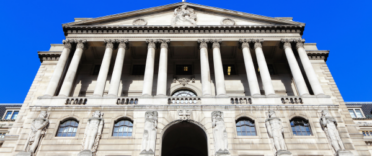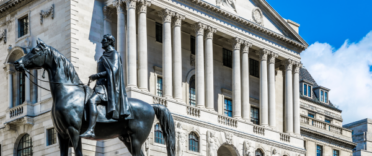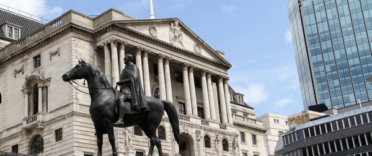 The Bank of England (BoE) has increased the base rate for the third time in a row to 0.75% in an effort to combat record inflation. The increase of 0.25% puts the interest rate back to pre-pandemic levels, with further increases widely anticipated.
The Bank of England (BoE) has increased the base rate for the third time in a row to 0.75% in an effort to combat record inflation. The increase of 0.25% puts the interest rate back to pre-pandemic levels, with further increases widely anticipated.
Why are interest rates rising?
The main driver of interest-rate increases by the BoE Monetary Policy Committee is high levels of inflation. The latest figures show inflation in the UK standing at 5.5% in January and it is predicted to soar to 8% in the second quarter of this year - a 30-year high. There are fears it could go even higher later in the year as substantial hikes in global energy prices, as well as other goods and services, continue to squeeze household incomes.
The MPC, which meets every 6 weeks to discuss potential interest-rate moves, voted 8-1 to move the base rate up by 0.25%. It hopes this will help tackle inflation, although it hasn't ruled out having to implement further hikes as the year goes on.
What does the interest rate hike mean for you?
The increase in the base rate will impact most people in the UK, whether you have a mortgage or savings. For homeowners a potential increase in mortgage payments may intensify the strain of meeting the growing cost of living. Meanwhile, for savers the news is more positive, particularly against a backdrop of historically low rates for an extended period.
If you have a mortgage
Your mortgage payments will remain unchanged if you have a fixed-rate mortgage. However, fixed-rate mortgage rates that are coming up to their end date within the next 3 to 6 months could benefit from a review. An independent, whole-of-market mortgage broker, such as Habito*, will be able to discuss your current deal and provide you with appropriate advice to minimise the impact of further interest rate increases - particularly in light of the BoE's predictions.
For borrowers with tracker or variable-rate mortgages, your monthly payment will increase in line with today's announcement. The base rate increase of 0.25% will affect your monthly repayment amount by around £12 per £100,000 of borrowing once your mortgage lender applies it but you can estimate your new mortgage payment using the interest-rate rise calculator. Today's interest rate hike puts the overall monetary increase for tracker and variable-rate monthly mortgage payments at around £31 per £100,000 borrowed since November 2021.
Tracker mortgage deals could be subject to early repayment charges if remortgaged to a fixed rate, but not always, making a conversation with a mortgage broker very worthwhile to consider all options.
To search for the cheapest mortgage deals use our mortgage best buy calculator.
If you have savings
The BoE's interest rate increase should have a positive impact on savings rates where these are applied by your provider. However, financial information firm, Defaqto states that only 10% of providers passed on the full base rate increase when it was last increased by 0.25% in February this year.
To review your current savings arrangements against the best rates available for a wide range of account types use this Guide to Savings Best Buys.
What is next for interest rates?
The BoE's commentary on the current state of inflation and interest rates is likely to mean that more households are keeping a close eye on the changes to interest rates and the effects of inflation on their incomes. You can read our ongoing commentary in our article, "When will interest rates rise (or in fact be cut)?"
If a link has an * beside it this means that it is an affiliated link. If you go via the link Money to the Masses may receive a small fee which helps keep Money to the Masses free to use. But as you can clearly see this has in no way influenced this independent and balanced review of the product. The following link can be used if you do not wish to help Money to the Masses - Habito





